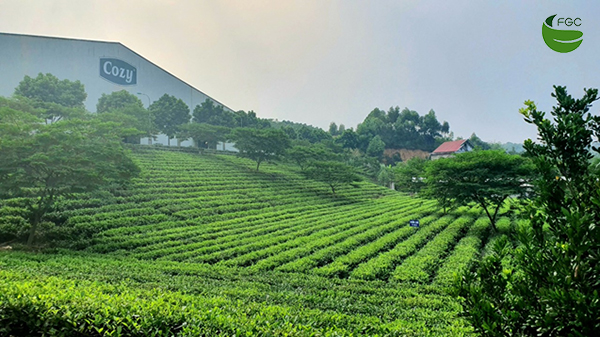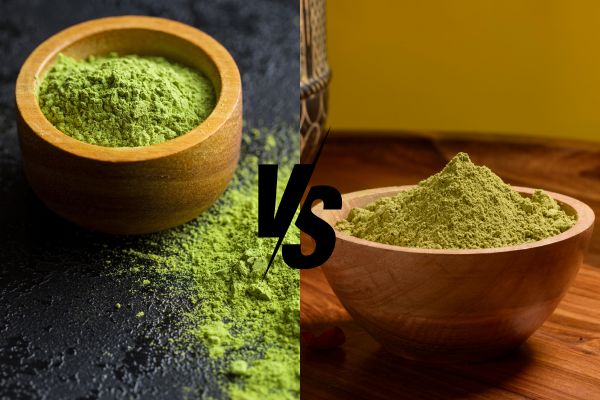“Definitely!” is the answer to the question in the title – Is organic tea good for you?. Because it can help prevent many diseases and reduce the risk of exposure to chemicals that are harmful to human health.
Organic tea refers to the tea cultivated according to organic agricultural processes. Farmers don’t use any chemical fertilizers or pesticides, herbicides, pesticides, or plant protection during all periods of growing tea, from planting to harvesting tea leaves. Instead, farmers use natural minerals and nutrients. They even use clean water according to standards for cultivation and natural methods to control pests and weeds.
To be clear about the benefits of using organic tea, our tea experts will explain it in detail for you in this article.

Contents
1. How good for health organic tea is
Organic tea still contains nutritious ingredients like regular tea. Thus it has the same health benefits like:
- Strengthens the immune system
- Helps Improve the digestive system
- May prevent cancer and serious diseases
- Boosts anti-oxidant and supplement vitamins and minerals
- Keeps blood sugar stable
If you want to learn more about the general benefits of tea, you can refer to the following articles of FGC.
- Vietnamese green tea benefits: All you need to know
- Vietnamese lotus tea benefits for health – beyond a beverage
Although sharing many same benefits, organic tea will be better for your health than regular tea because there is no risk of bringing chemicals into the body. That is the reason why using organic tea is a trend nowadays.

Avoids the risk of drinking pesticide residues
A great factor that not everyone knows when enjoying organic tea is that it is free of toxins. Farmers and manufacturers don’t use chemicals such as pesticides, herbicides, fungicides, or chemical fertilizers from the beginning of cultivation to the production of the final product.
Instead, they employ natural techniques such as solar-powered or sticky traps to catch insects to ensure sustainable tea production.

2. What is the difference between regular tea and organic tea?
Compared to regular tea, organic green tea requires more time and labor. And, of course, the cost of organic tea will be higher than non-organic tea products. Organic tea gets more susceptible to pests and diseases, so the yield in the first 1 – 2 years will be lower than others.

| Criteria | Organic tea | Regular tea |
| Tea variety |
Use tea varieties that have a clear origin, are non-GMO, and have been recognized for quality by the government. |
Use all normal tea varieties. |
| Fertilizers | Use organic fertilizer is a natural fertilizer made from manure and available plants.
Organic fertilizers ensure the number of nutrients to replace chemical fertilizers. |
Use many different fertilizers: biological fertilizers, chemical fertilizers, compost, etc. |
| Cultivation | Farmers must strictly follow the organic process from caring, fertilizing, harvesting to drying. Do not use chemical substances (chemical fertilizers, drugs). chemical pesticides, herbicides, etc.)
Organic tea growers only use natural wastes (rotted compost) and use natural methods to control pests and weeds (catch pests) by hand, mowing the lawn). |
Farmers grow tea and still use chemicals, such as pesticides, synthetic chemicals, etc. but guarantee the quarantine time before harvesting.
Farmers use water from nearby sources without any testing report. |
| Pesticides residues | No pesticides residues are found | Output tea only has residues of hazardous substances below the permitted level.
Do not cause harm to the health of consumers. |
| Sustainable development | Growing organic tea promotes ecology and conserves biodiversity. It also maintains water supplies clean and free of harmful chemical run-off. Organic farming employs natural practices such as crop rotation and composting to maintain the soil rich and fertile while also promoting plant biodiversity. | Overuse of pesticides will affect the growth and the pollination process of plants.
When hazardous pesticides, fungicides, and other chemicals leak into the environment, local wildlife animals are exposed then maybe die. |
| Certification | Tea products are certified and recognized by authorities; and are labeled ‘organic’ on the packaging. |
There is no organic certification available on the packaging. |

Although the process of producing organic tea products needs high requirements and a high selling price compared to traditional teas, it brings great benefits for your health and the environment. For example: protecting the health of tea growers, processors, consumers, and the environment in the long run.
3. Answer popular questions people also ask
Are organic teas caffeine-free?
If you ask if there is caffeine in organic tea, the answer is Yes. Organic tea is also from the tea leaf plant (camellia Sinensis), so they all contain caffeine. Don’t worry. Because the advantage of caffeine is stimulating the brain and central nervous system, keeping people awake, and preventing fatigue.
Caffeine amount depends on the tea variety, cultivation conditions, processing method, and brewing method. Green tea contains less caffeine than black tea – about 35 mg per cup (230 ml), compared with 39 – 109 mg for the same serving of black tea. Therefore, if you are sensitive to caffeine, choose green tea or herbal tea (chamomile, artichoke, etc.) to enjoy.

Related post: Does Vietnamese lotus tea have caffeine? Facts you should know
Can organic tea help lose weight?
The results of many scientific studies have proven that tea has thermogenic properties and promotes oxidation due to the presence of caffeine. Thermogenesis is the phenomenon of burning energy in the body when you eat and drink, helping to burn fat and increase metabolism. The mechanism explains why drinking tea helps lose weight.
The best type of organic tea recommended is green tea because simply green tea is the least processed. The more carefully processed teas are, the more their benefits are lost. And the best criterion for choosing weight loss tea is as natural as possible. You should choose organic tea from a reputable brand to ensure its quality.

Does organic tea have any side effects for your health?
Like all non-organic teas, organic tea will bring unexpected effects if drinking improperly. For example: Drinking more than three cups of tea per day can cause insomnia because taking in too much caffeine and tannin to the body. Drinking tea on an empty stomach will affect the stomach and respiratory system.

A few years ago, in Vietnam, organic tea was quite unknown and still strange to many people. However, recently, in developed countries such as the US, Japan, and Europe, organic tea has been used a lot and has become a familiar drink for users in Vietnam.
Future Generation company is proud to be able to provide organic tea products with clear origin and the highest quality to customers. Our organic tea garden in Phu Tho province covers an area of more than 10ha, planted with high-quality varieties such as Shan Tuyet, Kim Tuyen, Phuc Van Tien.
Our organic tea farms are strictly controlled in terms of cultivation, irrigation, and fertilization according to Vietnam’s organic standards.
In conclusion, organic tea is good for people who drink and plant, and environment. If you have a need for organic tea, don’t hesitate to contact us via website www.vietnam-tea.com or email info@vietnam-tea.com.










